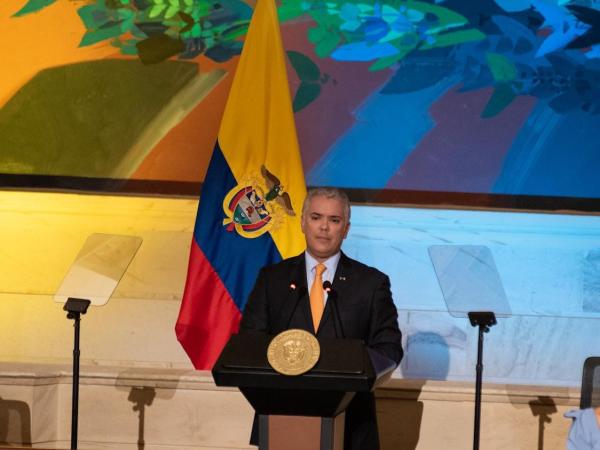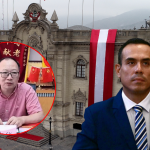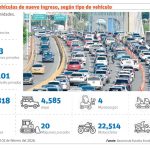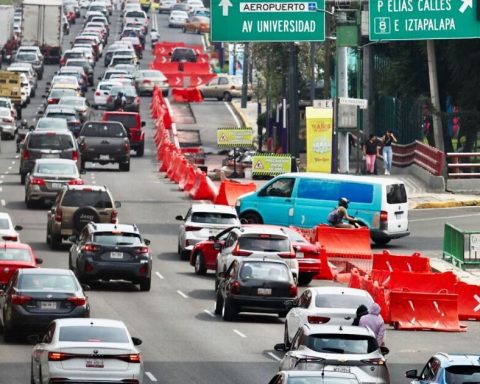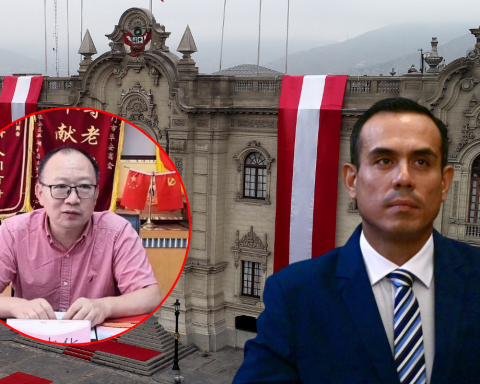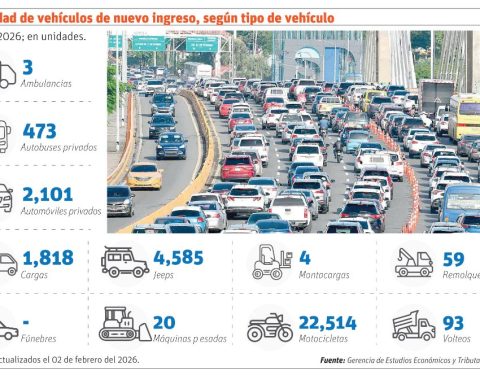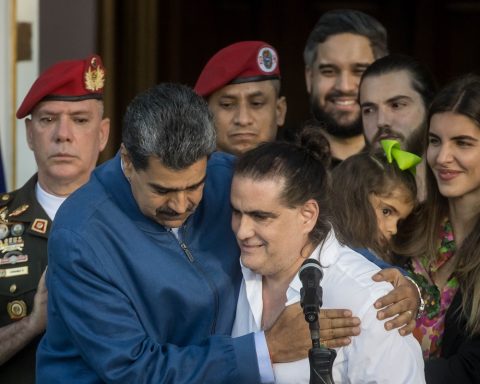The President Ivan Duque takes stock of his four years in office, talks about what, from his point of view, are the keys on which to work forward and gives his vision for the future of Colombia, which “will be promising” although the panorama at the world is not the most optimal.
(Read: ‘Colombia recovered 100% of employment’, the balance of Iván Duque).
What is your economic balance?
Any balance that we are going to make of our economy always has to take into account one element, and that is that we are going through the worst crisis that humanity has experienced in almost 100 years, with a pandemic and its devastating effects.
Taking this situation into account, we can say that Colombia showed economic strength and resilience, and it showed it because we achieved the highest growth in our history last year, after coming out of the 2020 coup, where we were one of the economies that decreased the least. In addition, we started the year 2022 with the best first quarter in terms of growth so far this century.
We have achieved the lowest rate of labor informality recorded in Colombia and we have recovered 100% of the jobs that were lost during the pandemic. Also, we achieved the highest agricultural exports that Colombia has registered and added to that we registered the highest FDI since 2005. These historical figures show why the Colombian economy has been so strong.
What do you say to those who speak of ‘clouds’ for the second quarter?
Before talking about the storm clouds, let’s talk about a before and after. The policies that we implemented in 2018 were the ones that led us to close 2019 with economic growth of over 3.4%; obviously the year 2020 came with the pandemic and it hit us in a big way.
But aside from that, we launched our reactivation plan combining public and private sources, and that allowed us to have the best year of economic growth in our history by 2021, 10.6%, and with sustainability in that rebound that is seen reflected this year, when we achieved an increase of 8.5% in the first quarter.
This shows that investment, the sectors for which we have made a commitment, the acceleration of investment, all added to the mechanisms to maintain national aggregate demand have given extraordinary results.
The household economy has not recovered at the same pace…
Let’s start with the most basic things. Colombia registers the year 2021 with all the programs that we launched, the lowest multidimensional poverty since using the indicator, 16%. And 100% of the jobs lost during the pandemic were recovered.
The labor informality rate is the lowest in the quarterly measurement that Colombia has achieved. And outside of that, let’s add another element and that is that today we have the largest number of people contributing to social security, to the pension system, about 10.6 million people.
All this shows that growth has been equitable. We achieved a better coefficient than it shows that growth policies have not only translated into improving social conditions, but have also translated into improving incomes for workers.
Inflation also increased and is close to double digits, what is your balance and what do you expect?
Inflation is a worldwide phenomenon. It is due, on the one hand, to the shocks in the supply chains that were generated during 2020, in what has to do with the availability of containers, freight costs, and on the other hand, with this stupid, infamous and Russia’s genocidal war against Ukraine that has affected food supplies in the world.
(Also: The leaders and presidents who will attend Petro’s possession).
One of the things that we have done is to act in advance and with intelligence, among them, also subsidizing the cost of fuel during a very good part of that reactivation process.
Interest rates have also been increasing and, obviously, I believe that in the coming year, the Banco de la República will surely continue to adjust its rates.
Duque and Petro, in their first meeting.
private file
The dollar has been worrying Colombians, what to say about it?
I think that in these foreign exchange issues you have to take them with caution, but you also have to take it without panic. We are seeing that there is a great risk that the United States enters a recession and, therefore, many investors from many countries are moving their portfolios.
The other thing is that in Latin American countries, the markets are not stupid and the market has a long memory. When the markets remember what happened in the 80s, such as the recession in the United States and the increase in its interest rate, as well as in the region, where governments began to persecute the private sector and generated massive investment outflows.
Today we see in many countries governments that can commit the same stupidities of the 80s. The countries that have greater macroeconomic stability with investment and guarantee the rules of the game in the short, medium and long term, are the ones that are going to maintain the greatest monetary stability in Latin America. That is invented and that is so.
That is to say, President, that you do see local effects in the dollar…
There is uncertainty as a result of political transitions, it must be recognized, because that uncertainty only dissipates when the governments that have been elected take power and give concrete and specific signals to the markets, but from before the markets also begin to take preventive measures or precautionary.
To the extent that there are signs of uncertainty, the exchange rate will continue to be affected and there will be more demand for dollars and, given more certainty, this will have to be revalued.
The pandemic marked your administration, what aspects can you highlight?
The Bloomberg Pandemic Resilience Index has often been used to beat us up. Today Colombia is the first country in Latin America in that index. We achieved the duplication of ICUs, the best distribution of ventilators and the implementation of the vaccination plan, which has also allowed a rapid reactivation. We may have spent less than others, but we spend smarter by targeting where we actually have an effect on GDP.
Although it has been corrected, before 2020 unemployment was already in double digits, what to say about it?
We received an unemployment rate that was on the rise, it is that the unemployment rate began to deteriorate since 2015, it is not from now. We make a series of decisions and many of those decisions take time to be reflected in the labor market, but in 2019 we began to see trends in favor of formalization and one of the measures we took in the midst of the pandemic to make it permanent was the incentive to pay 25% for each new worker between 18 and 28 years old, the equivalent of the Social Security payment, there are already more than 500,000 young people who have entered through this mechanism.
(Keep reading: President Duque’s full speech at the installation of Congress).
Also something that helped was the Paef, with the subsidy of 40%-50% of the minimum wage. If the measures are maintained, unemployment will very possibly reach single digits before the end of the year.
Do you see a future for the measures?
Letting Solidarity Income die would be foolish. The Solidarity Income already belongs to the people. It reached four million homes in minutes, to put it allegorically, compared to 20 years in exceeding 3 million with Families in Action. We made social measures but they have also given the country resources to maintain its aggregate demand. I think those programs should continue. At the current amount, the program costs $10 billion a year. If you want to take $500,000, do the math. I think you have to be reasonable.
What do you think of the turn with Venezuela?
Language is very important, because we have not broken a relationship with Venezuela, what is more, we have had the most fraternal relationship possible with its people, to the point that we have welcomed 1.8 million migrants.
And it may be that tomorrow relations with the dictatorship will be restored and they will come with their siren songs, but I ask, how many Colombians are willing to sell to Venezuela on credit? How many are willing to export with a collection account for 30 or 60 days? We must learn from the past so that it does not happen again. Whoever wants to sell to Venezuela, must sell, but must be paid first.
Ecopetrol has been a protagonist in the joint, what is the future of oil in Colombia?
Believing that oil will run out in two or three years is ridiculous, it’s clumsy, that’s not going to happen. We do not burn hydrocarbons to generate electricity, more than 75% of our matrix is hydroelectric and non-conventional ones are gaining more and more space. That is something we have to accept. Another thing that must be accepted is that we must go out and take advantage of the richness of the subsoil to face the poverty of the soil. That is why this sector represents more than 40% of investment and 30% of FDI.
What’s next for you?
I will be very close to my family, with my children. I am working on an academic project and I will be with the firm intention of creating a foundation that trains leaders.
How do you see the future of Colombia?
If Colombia maintains the certainty, the rules of the game, the motivation for investment, favorable taxation for business development and apart from that we continue to recover in the dynamics, as we are doing with jobs and, in continuing to bet on the sectors that help to the energy transition, but preserving the traditional sectors of our economy, because the future will be promising.
BRIEFCASE
